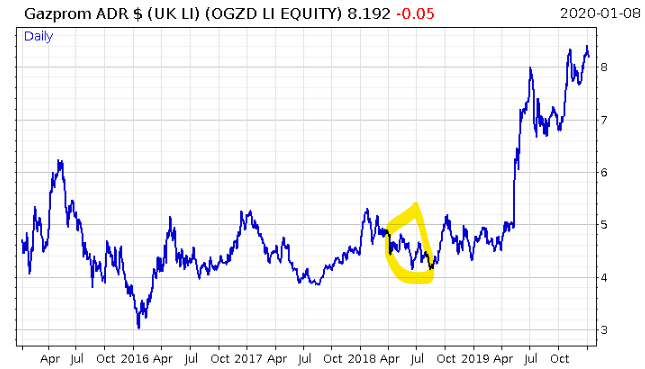“Buy when there’s blood in the streets, even if the blood is your own” goes the advice of Baron Rothschild, sharing an investment lesson he learned brutally during the chaotic tumult of the 18th century.
… or at least, that’s what he’s supposed to have said. The mythology of the Rothschilds, the famously cunning banking family, has taken on a life of its own and Baron Rothschild’s quote can change depending on who you ask.
Nobody is really sure what the original quote is. Or if he ever actually said it. But it sounds dramatic
My favourite version of the quote, which encapsulates the mythos of the Rothschilds as a dark and ominous banking elite, goes:
“When the streets of Paris are running with blood… I buy.”
Whichever version you prefer, the idea is pretty simple: buy assets when dramatic events are occurring which have made other investors fearful. Or, even simpler: “Buy the dip”. So really, if you pound-cost average when building an investment portfolio, or just regularly invest in a passive tracker fund, you can tell everyone you follow a centuries-old Rothschild investing strategy.
My colleague Nickolai came up with his own spin on the phrase in 2018, and won’t stop going on about it:
“When the streets of Salisbury are running with Novichok… I buy.”
Anti-Russian sentiment has been pervasive over the last decade, spiking when somebody lost an election in 2016, and reaching something of an apogee in 2018 with the Salisbury attacks.
Like many of the editors here at Southbank Investment Research, Nickolai is a contrarian, and saw the anti-Russian sentiment as an opportunity to buy profitable Russian assets as investors sold them fearing international sanctions.
One of them, the Russian energy company Gazprom, was the apple of his eye. As he wrote in a piece of editorial of the company:
It’s one of the world’s largest energy companies, but mired in controversy. It supplies Europe with enormous amounts of gas from Russia via Ukraine. The reason I highlight it to you is that it’s extraordinarily cheap on price to value ratios. The share price could easily double or triple to match the valuation of its competitors. Thanks to the political risk, people are hesitant to buy it…
After the Salisbury attack, and the international condemnation Russia received, Nickolai wanted to tell everybody to buy the stock, and actively promote it with the Rothschild angle. When better relations between the West and Russia, decent companies like Gazprom would be strongly revalued higher.
We didn’t end up promoting his idea, and he doesn’t let us forget it. Highlighted is the time of the Salisbury attacks:
But the reason I’m bringing this story up with you is less to talk about Gazprom, and more to talk about how Russia is so overt in courting international stability. The answer to this, or at least one of the key answers to why Russia is so happy to create international instability tension, is energy.
Russia benefits from international stability, as this can lead to higher energy prices. And due to Russia’s massive reserves of natural gas and oil, the higher prices can actually benefit Russia’s economy and lead to increased revenues for the government. Instability also makes it harder for less reliable energy producers to get contracts, leading to an increased international reliance on Russia’s deep and stable petroleum industry.
It used to be the polar opposite for the US, which imported much of its energy and was cut by higher prices. As that oil had to be transported by sea, the US also had a vested interest in keeping maritime trade routes stable.
To counteract these issues, the US embarked on a series of deals with Gulf nations in the 1970s to ensure that oil sales to the US would not be interrupted and priced in dollars. It was also strongly invested in keeping those nations remaining stable and unthreatened by other states (regardless of how… “different” their political systems might be).
But as we alluded to at the end of yesterday’s note, with the rise of the fracking industry, and the US overtaking all those Gulf states to become the world’s largest oil producer, all those previous commitments to stability are no longer so certain.
In fact, whether global energy stability or instability is now in its best interest… the US now looks distinctively Russian. When you look at where the frackers are based on an electoral map of the US, you can imagine some interesting actions a president might take in, say, the Middle East to get re-elected.
But there’s another reason the US might conspire to increase the world’s energy prices. A gambit with much more far-reaching costs than the price at the pump. A strategy of instability, which would breed sudden and much deeper instability in a certain rival country… which we’ll explore tomorrow.
All the best,
Boaz Shoshan
Editor, Capital & Conflict
Category: Market updates



